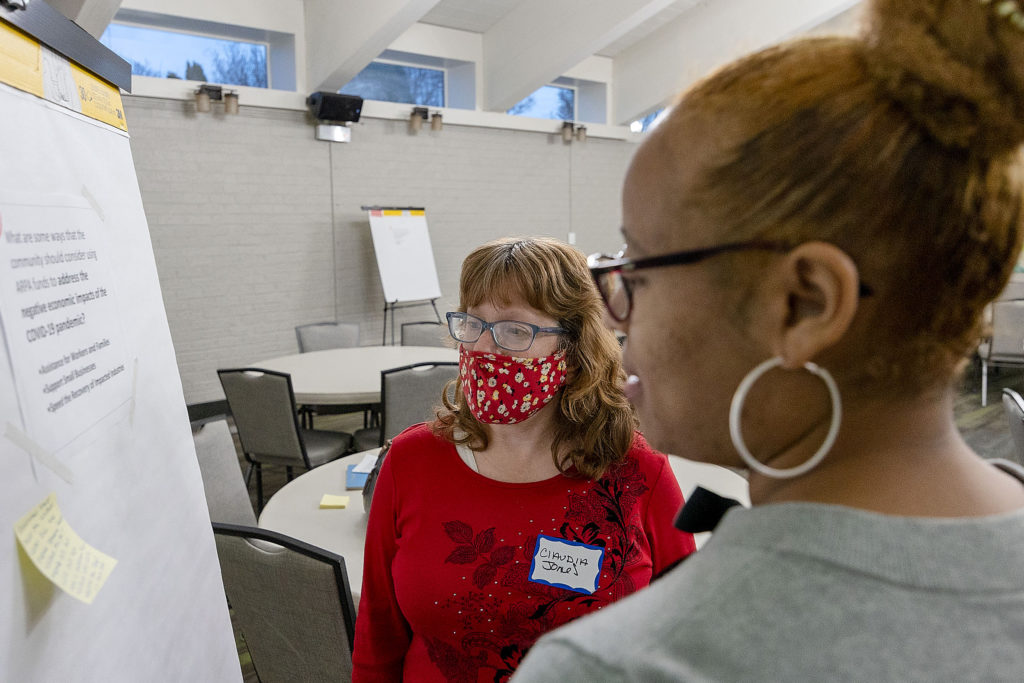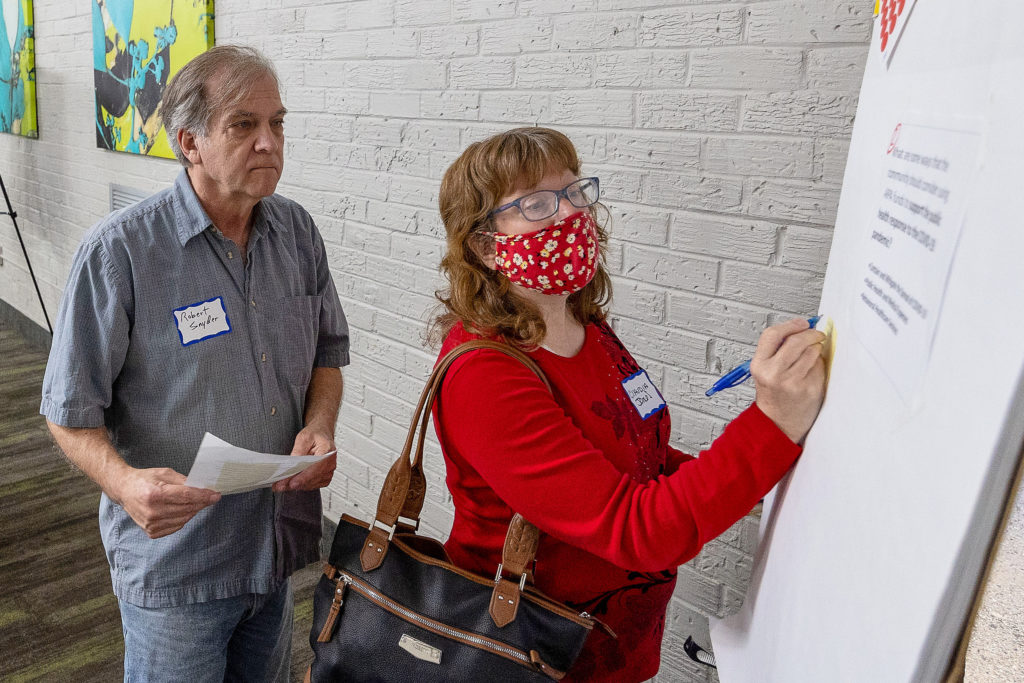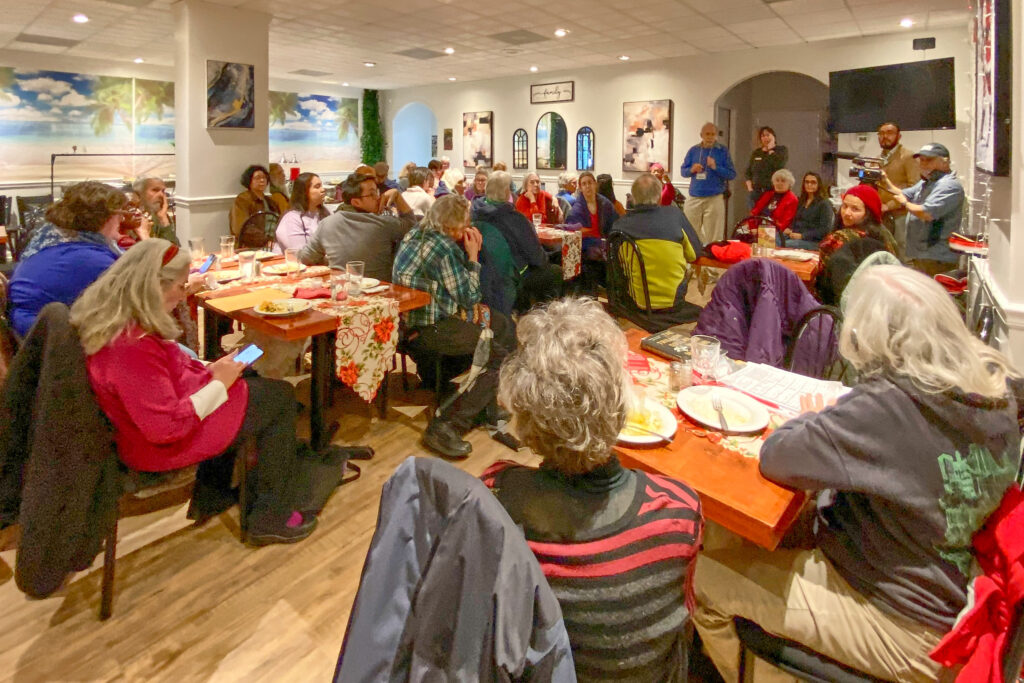Greenbelt’s windfall of nearly $23 million from the federal American Rescue Plan Act (ARPA) has the potential to rapidly improve services, quality of life and infrastructure across the city. To determine how to invest these funds, the city’s outreach efforts include a survey, online at engagegreenbelt.org and printed on page 12. The survey closes Friday, April 15.
Signed into law by President Joe Biden on March 11, 2021, ARPA gives local jurisdictions a rarity – large contributions from the federal government with few limitations. The city has engaged Raftelis, a company with outreach expertise, to work with residents on idea generation. Residents have had multiple ways to easily highlight problems that could be addressed by ARPA funds, including the survey, in-person meetings and a website to capture ideas from residents. The city has made it easy to contribute through a special email address at ARPA@greenbeltmd.gov, and is accepting written ideas from residents. The goal is to ensure these funds are used for transformational projects that will have a positive effect on the city for the next 20 years.
Residents gathered March 22 at the Greenbriar Community Center for the second in-person meeting about how to spend ARPA funds. Raftelis consultants Jennifer Teal and Athena Hall facilitated a group discussion and explained how ARPA works. Residents wrote their ideas on post-it notes and stuck them on dedicated easels that covered allowable uses of ARPA funds as dictated by legislation. Tim George, acting city manager, welcomed residents and encouraged them to engage city staff in a free flow of information. “We want to get as much input from residents as we can. Staff is not deciding, we are simply aggregating ideas that have come forward.”
George, the city’s top-ranking executive, stayed for the entire in-person session. He spoke at length with residents individually and marshalled a deep knowledge of federal funding, including prior funds for Covid before ARPA, and the importance of these funds for local government, adding, “This is life-changing generational money and we want to make sure everyone has a voice in how we appropriate that money.” Resident Robert Snyder said, “I like the concept of writing something and putting it on the board. It’s interactive and lets you write down your thoughts instead of speaking out.” Raftelis will compile raw ideas from all sources and provide a final report, with all of the original ideas plus a summary of themes and findings, to help council decide how to spend the money.
Greenbelters are full of great ideas and at press time have submitted over 60 to the Raftelis website already. Residents are focused on reducing homelessness and food insecurity, creating programs for mental health, employment, homebuying and business start-ups. Cash or vouchers remain a recognized need for rent, mortgage, utilities and health services or bonuses to retail and essential workers who faced the brunt of stress during the Covid pandemic. As ARPA funds can be used for infrastructure improvements, residents have also suggested the city fix stormwater and drainage issues at several known problem areas around the city. Other submitted suggestions are to improve broadband access, update recreation facilities and fields for youth and make green improvements to city facilities like landscaping with edible plants and installing solar panels and permeable parking lots. Relaxing with residents at the Greenbriar Community Center, Mayor Emmett Jordan said, “The focus on the human element is really important and at the same time it is an opportunity to do holistic things for the city and incorporate environmental and economic improvements.”
The city must carefully track and report on how the funds are distributed to ensure the money is exclusively spent on six broad areas described in the legislation: public health, negative economic impacts, services to disproportionately impacted communities, premium pay, infrastructure and revenue replacement.
Greenbelt can also set aside funds to handle the administrative aspects of managing ARPA programs. To date, 259 Greenbelt households have received $1,007,282.73 in rent, utility, mortgage and HOA fee assistance. Additionally, 24 businesses and nonprofit organizations have received $400,000. All ARPA funds must be obligated by December 31, 2024 and, spent by December 31, 2026.






